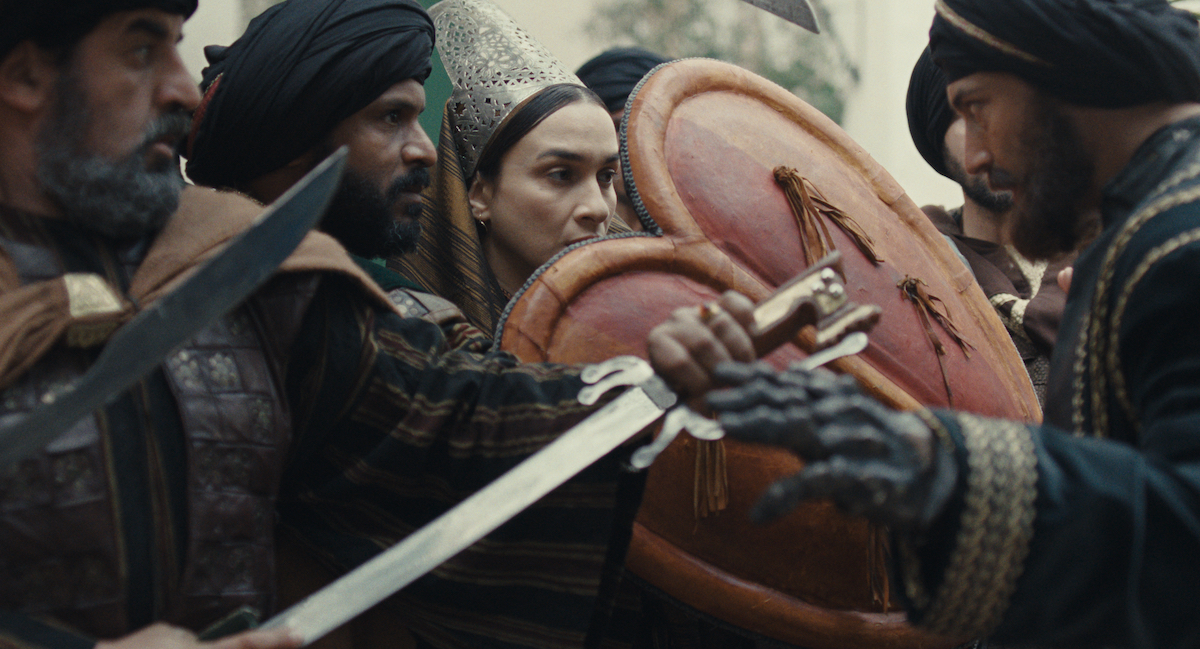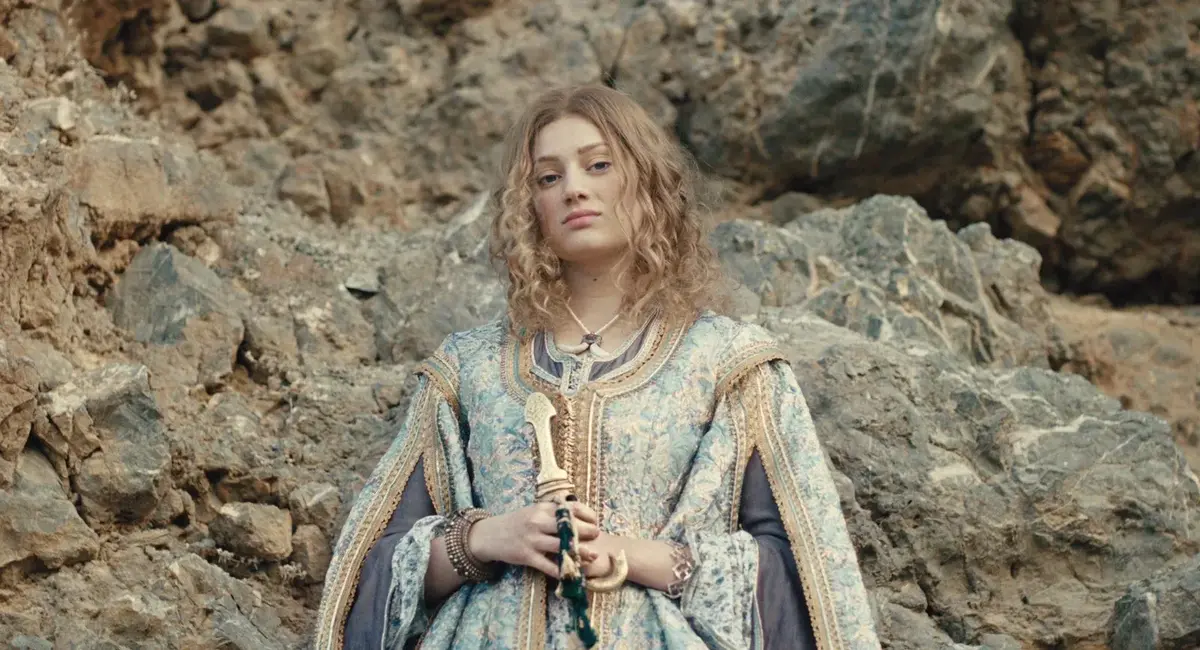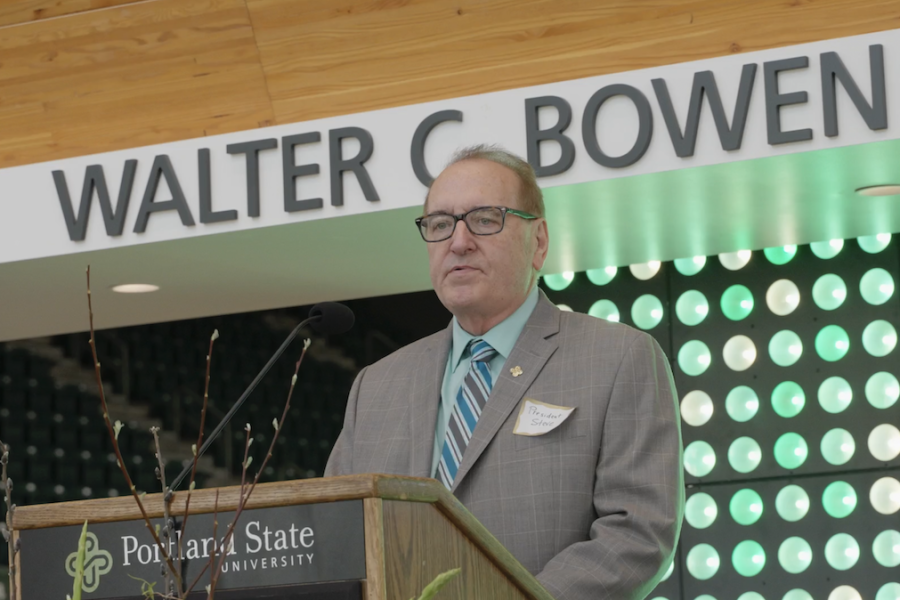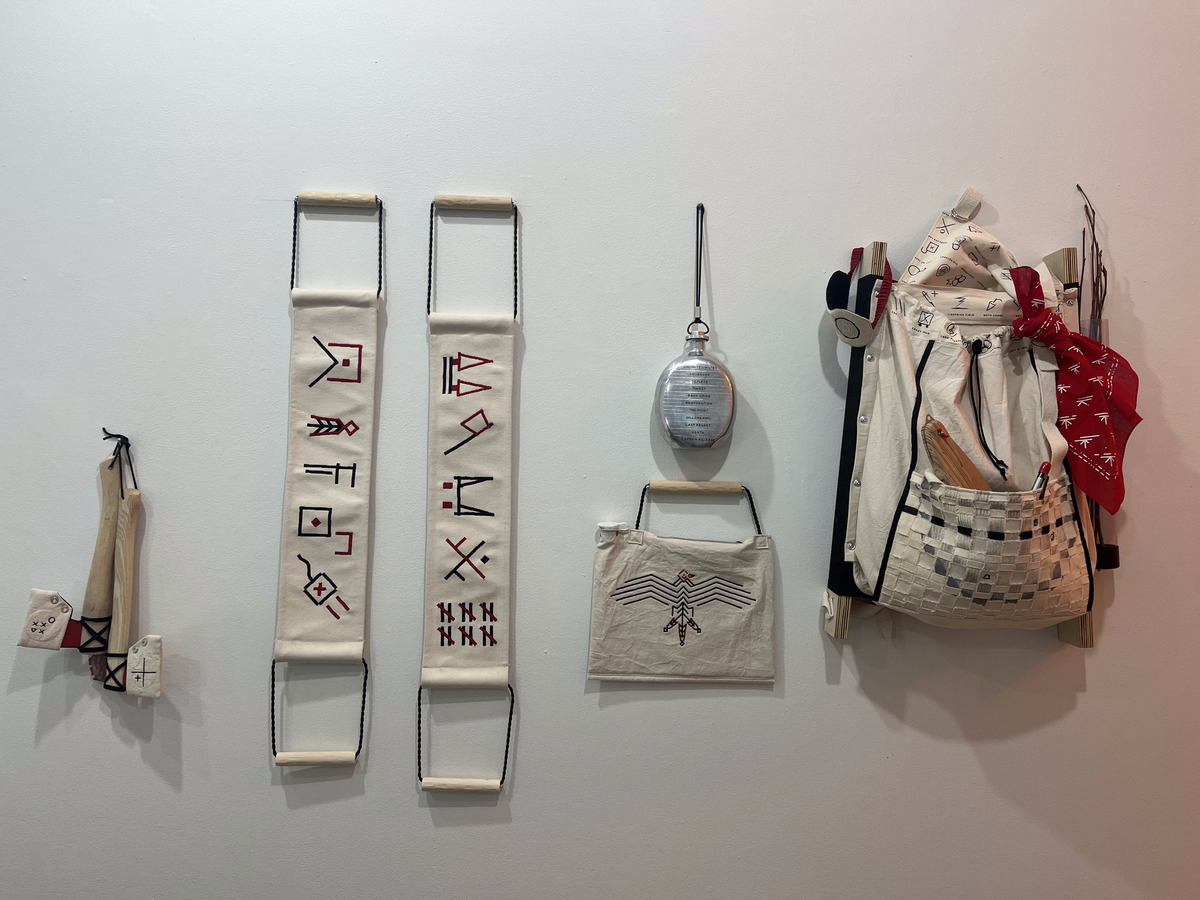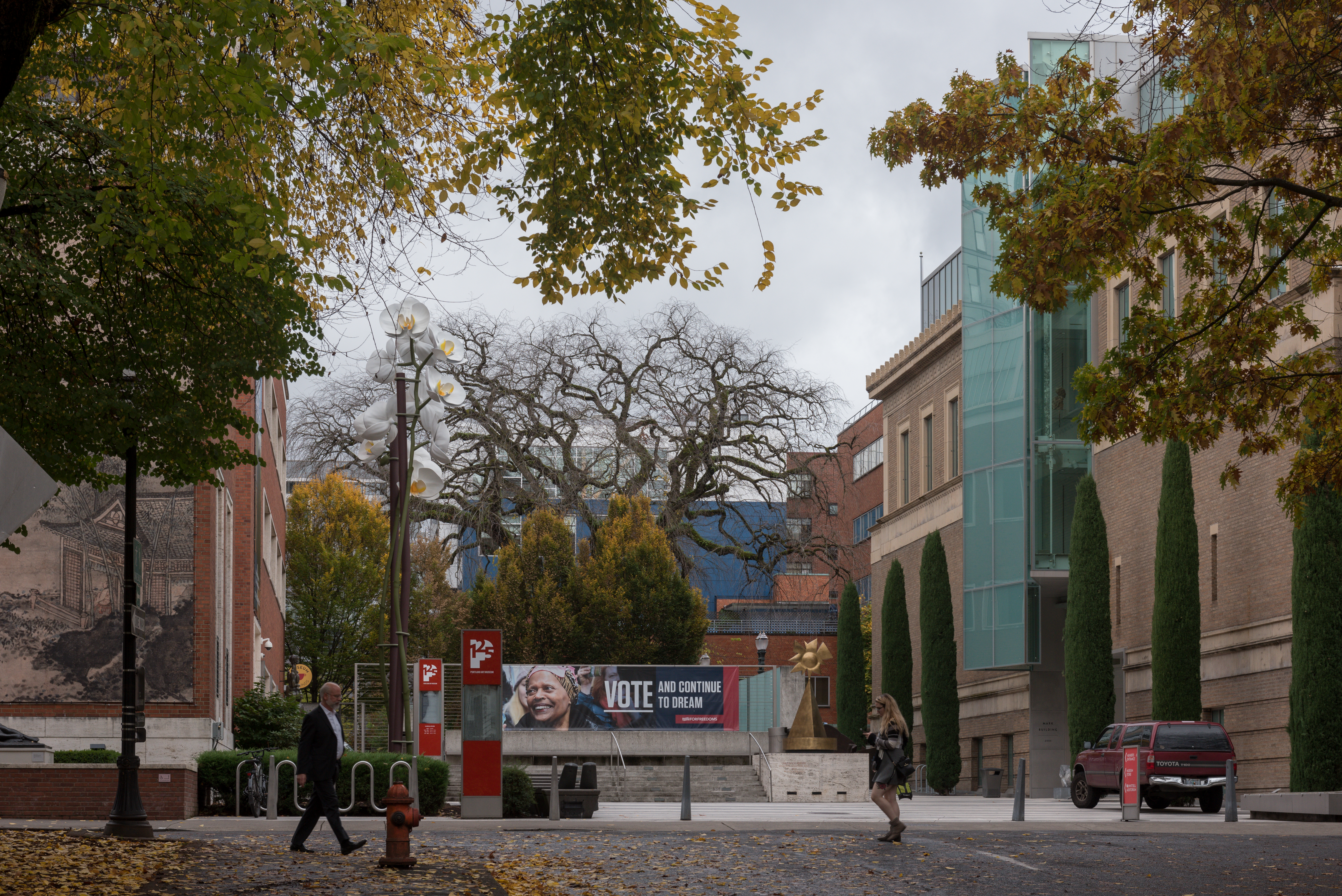Portland State’s Middle East Studies Center will be hosting a screening of the 2022 Algerian historical drama The Last Queen, directed by Adila Bendimerad and Damien Ounouri, on Friday, May 26.
This event will take place at 5th Avenue Cinema. It’s free, open to the public and will include a Q&A session afterwards with special guests Ahmed Bedjaoui and Nabil Boudraa.
Ahmed Bedjaoui is a professor of Audiovisual Communication and Cinema at Algiers University 3, and Nabil Boudraa is a professor of French and Francophone Studies at Oregon State University.
The Last Queen is the story of Algeria’s past, a tumultuous history that shaped the political and cultural reality of modern Algeria. Set in the 1516 Kingdom of Algiers, Queen Zaphira (Adila Bendimerad) boldly resists the Ottoman invasion of her kingdom in an impassioned tale of violence, betrayal and sensuality.
This first-of-its-kind historical drama shatters the mold of Algerian cinema and historical narrative alike. The underlying plot of the film reveals a true history, never before depicted on screen.
“Most of it, if not all of Algerian cinema, deals with the colonial period, meaning the late French occupation of Algeria, and the Algerian revolution,” Boudraa explained. “The film is interesting because it’s probably the first Algerian film that tackles Algerian ancient history or removed history.”
“North Africa, Algeria in particular, has known colonization for more than 3,000 years,” Boudraa said. The Last Queen depicts the pivotal moment in which the King of Algiers, Salim Toumi (Mohamed Tahar Zaoui), is assassinated by Ottoman corsair Aroudj Barbarossa (Dali Benssalah), marking the beginning of Ottoman occupation in Algeria.
While the overarching historical events and lives of the male figures in The Last Queen are attested, the details surrounding Queen Zaphira are highly debated by historians. Co-director and lead actress of the film, Adila Bendimerad, explained the making of Zaphira’s character in the film’s press kit. “In the various historical accounts, we speak of the wife of King Salim Toumi who raised a rebellion against the corsair Aroudj Barberousse,” she said. “In hundreds and hundreds of pages of historical testimony, this woman’s name is never mentioned!”
The production of The Last Queen is pioneering not only because it makes space for women as action film protagonists, but it also makes space for women in history itself. “Since the men who wrote history decided to erase them or to discredit them, I find it important historically and poetically to evoke them, to imagine them, to interpret and to question the few elements that we have,” Bendimerad explained.
Of course, women are not the only ones who have been blotted out from this history. The Last Queen is intentional in representing the ethnic diversity of Algeria as well.
“Here is a window that’s opening at last,” Boudraa said. “Finally, it’s opening on the ancient history of Algeria. Because whether it’s the authorities or whether it’s colonialism, it’s always these cliches that Algeria was nothing, nothing happened, nothing was there before colonialism—French colonialism, that is. And that’s a big cliche.”
The French colonized Ottoman Algeria in 1830, and occupied the region until Algeria gained independence in 1962, after nearly eight years of violence in the Algerian War of Independence.
Despite these centuries of colonization and oppression, the Indigenous Peoples of Algeria have maintained their identity and continue to fight for rights and representation in present day Algeria. One way in which The Last Queen honors the ethnic diversity of Algeria is through the language of the dialogue. Colonial ideology, historically and presently, pressures Algerians to accept French and classical Arabic as the standard languages. However, Boudraa explained that these two languages are “not really widely used by the population.”
“What’s widely used by the people in everyday life in every street is Algerian Arabic,” he said. “Derja is the name of Algerian Arabic. It’s not really Arabic—it’s a blend of many languages. It’s like a dialect, spoken by Algerians but also Morrocans and Tunisians with variations, with different accents.”
The directors incorporated about seven languages in the film. Their intent was to represent the diverse nature of Algeria’s history and people. “We spoke a thousand languages here,” Bendimerad said. “We come from these mixtures and it is magnificent. It is this hybridization that can still be heard through our surnames, our cuisine, our faces, and it is probably our greatest strength.”
Another language featured in the film is Kabyle, a language of the Indigenous Berber People of North Africa (also known as Amazighs). “I come from a Berber region next to Algiers called Kabylia, so we speak Kabyle language—it’s a dialect but it’s actually a language,” Boudraa said. State suppression of Berber identities and languages has contributed to the marginalization of Berber languages and a dismissiveness of their proper classification.
“Now that I see these two sidelined, marginalized, minority dialects dominating the film—it’s a great thing for me, for Algerians,” he said. “It’s the two languages that represent the people of Algeria, of North Africa. And that’s reality. That’s what people speak.”
The Last Queen is more than entertainment—it serves to represent a cultural and historical reality for Algeria and North Africa.
Even the film sets made use of the most authentic locations possible. The scenes take place on actual historical sites, such as palaces and mosques. “It was very important not to do it in the studio, in another country, but to show the richness of what remains of our heritage,” Bendimerad said.
The film was produced over the course of roughly seven years. Being the first of its genre, the production required extensive historical research, innovative costume design and an original soundtrack.
At the intersection of Indigenous representation, women’s valor and regal cinematography, a masterpiece so defiant of the dominant narrative is born that it is actually being stifled by the Algerian state itself. “It’s been blocked by the government, by the authorities,” Boudraa said. “Nobody knows exactly why they did that. The government, the authorities, they say it’s because of bureaucratic reasons.”
Meanwhile, The Last Queen has been received with zeal on the international stage. After its premier at the 2022 Venice Film Festival, it was met with huge success with its release in France last month. “The theaters are so full of people that they are extending the duration of the film… especially in Paris, they are opening more screening sessions,” Boudraa said.
The screening at 5th Ave. Cinema is an event that not only promotes intercultural awareness, but also makes this film very accessible to the PSU community.
“Ahmed has connections in the film industry in Algeria and was able to secure us a very reduced price for screening The Last Queen,” said Corinne Hughes, the MESC Outreach Coordinator. “Typically, to screen a feature film can cost hundreds of dollars for the screening rights, so this was such a fantastic opportunity with this being a new, foreign film.”
As experts in Algerian cinema and culture, Boudraa added that for the Q&A portion of the event, he and Ahmed Bedjaoui will “be available to answer questions and will also give context about the film so people will know what this is about, because it’s not obvious. Even Algerians watching this, most of them will be just discovering a new page in their history.”


